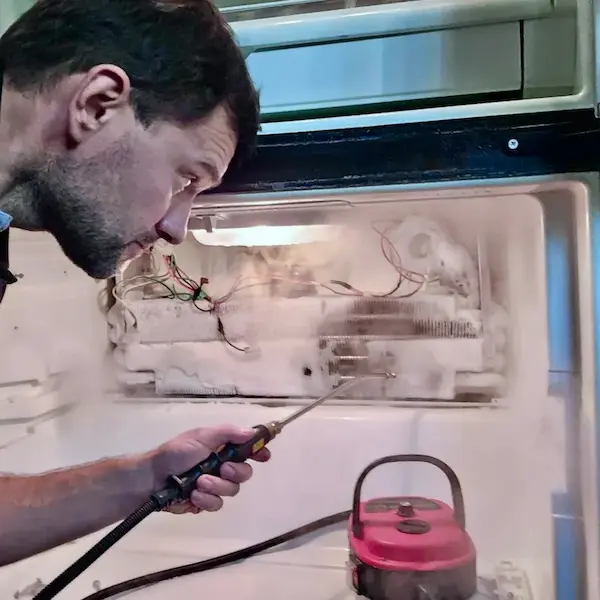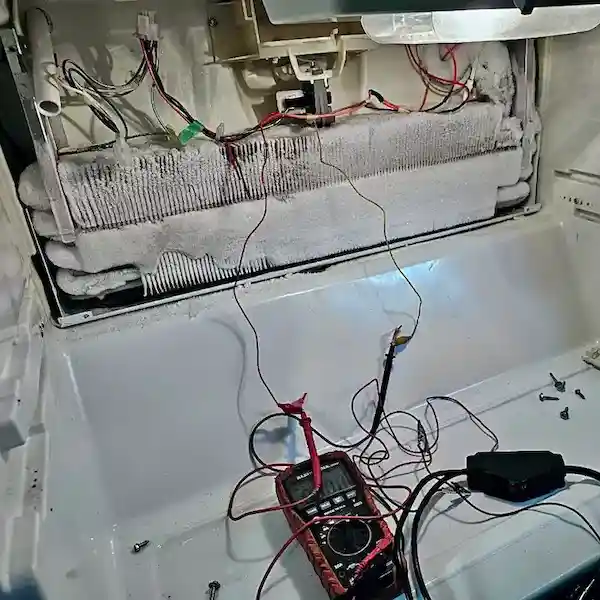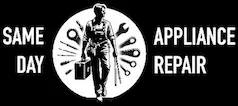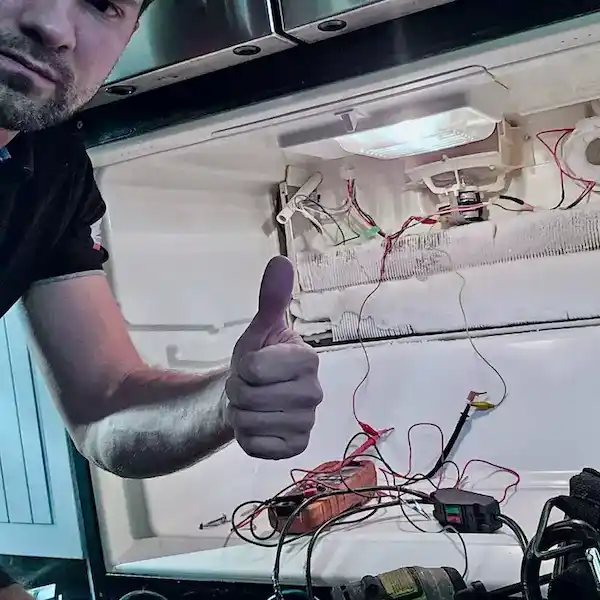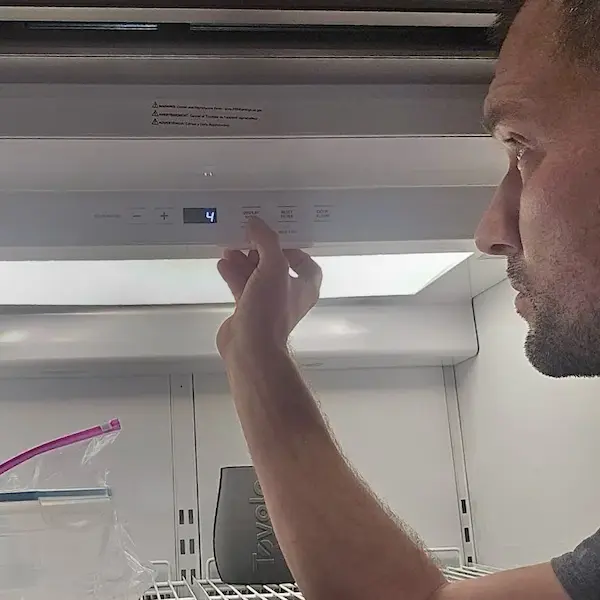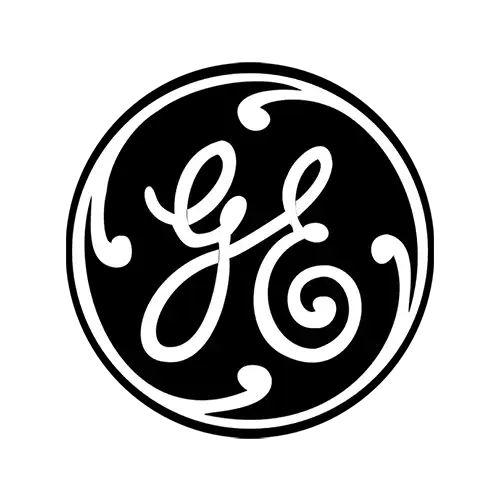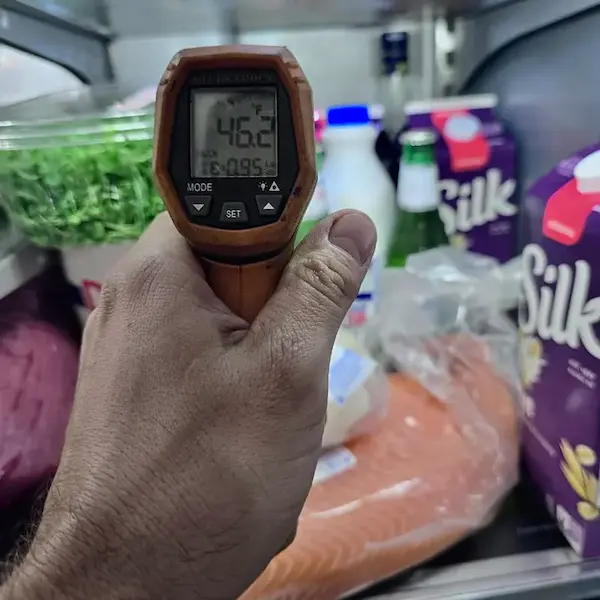FAQs
What are common issues with freezers and how to fix them?
︾
︽
Common issues with freezers and their potential fixes include:
Freezer not cooling:
- Check if the power cord is plugged in properly and the circuit
breaker hasn't tripped.
- Ensure the freezer is not overloaded, blocking airflow.
- Clean the condenser coils to improve heat dissipation.
- If the issue persists, it could be due to a faulty compressor or
thermostat, requiring professional repair.
Frost buildup:
- Check the door gasket for damage or debris and replace if necessary
to maintain a tight seal.
- Ensure the freezer door is closing properly and not left open for
extended periods.
- Defrost the freezer regularly according to the manufacturer's
instructions.
Excessive noise:
- Tighten any loose screws or bolts on the freezer.
- Check if items inside the freezer are rattling and rearrange them to
reduce noise.
- If the noise persists, it could be due to a malfunctioning
compressor or evaporator fan motor, requiring professional attention.
Water leakage:
- Check the defrost drain for clogs and clear any obstructions.
- Inspect the door gasket for damage or wear and replace if necessary
to maintain a proper seal.
- Ensure the freezer is level, as uneven placement can cause water to
leak out.
Faulty defrost cycle:
- Test the defrost timer, heater, and thermostat for continuity using
a multimeter and replace any defective components.
- Clean the evaporator coils to improve heat transfer during the
defrost cycle.
- If the defrost cycle still doesn't function properly, it may require
professional repair.
Unusual odors:
- Remove any spoiled or expired food items from the freezer.
- Clean the interior of the freezer with a mixture of warm water and
baking soda to neutralize odors.
- Place an open box of baking soda inside the freezer to absorb odors.
Always refer to the freezer's user manual for specific troubleshooting
steps and safety precautions. If you're unsure about how to fix an
issue or if it requires specialized tools or expertise, it's best to
contact a professional freezer repair technician.
How to troubleshoot a freezer that won't turn on?
︾
︽
Power Supply Check:
- Ensure the freezer is plugged in and the outlet has power. Check the
circuit breaker or fuse box.
Control Settings:
- Verify the temperature settings and ensure the freezer is not in
"off" mode.
Door Closure:
- Confirm the door is fully closed and the seal is intact to prevent
air leaks.
Clean Condenser Coils:
- Remove dust and debris from the condenser coils to improve airflow.
Evaporator Fan and Defrost Timer:
- Listen for the fan and test the defrost timer's functionality.
Start Relay and Compressor:
- Check the start relay's continuity and inspect the compressor for
operation.
If troubleshooting doesn't resolve the issue, contact a professional
repair technician for assistance.
What are the signs that a freezer needs repair?
︾
︽
Temperature Fluctuations:
- Noticeable changes in freezer temperature, leading to inconsistent
freezing or thawing of food.
Excessive Frost Buildup:
- Frost accumulation inside the freezer, indicating potential issues
with the defrost system.
Unusual Noises:
- Strange sounds such as buzzing, grinding, or rattling, which may
indicate problems with the compressor or fan.
Visible Leaks:
- Puddles of water or coolant around the freezer, signaling potential
leaks in the system.
Faulty Seals or Gaskets:
- Cracked or torn door seals, leading to air leaks and reduced cooling
efficiency.
Ice Maker Malfunctions:
- Failure to produce ice or dispensing improperly shaped or sized ice
cubes.
Excessive Energy Consumption:
- Sudden spikes in energy usage without changes in freezer usage
patterns.
If you notice any of these signs, it's advisable to have a
professional technician inspect and repair the freezer to prevent
further damage.
Is it worth fixing a fridge freezer?
︾
︽
Fixing a fridge freezer can be worthwhile depending on several
factors:
Age of the Appliance:
If the fridge freezer is relatively new and in good condition overall,
refrigerator repair may be a cost-effective option.
Cost of Repairs:
Compare the cost of repairs to the value of the appliance and the price
of a new one. If the repair cost is significantly lower than replacement
costs, repairing it might be the better choice.
Extent of Damage:
Consider the severity of the issue. Minor problems like a broken seal or
faulty thermostat are often worth repairing. However, if the compressor
or cooling system is damaged, repair costs can be high, making replacement
a more practical option.
Energy Efficiency:
Newer models are generally more energy-efficient than older ones. If your
fridge freezer is outdated and repairs won't significantly improve its
efficiency, investing in a newer, more energy-efficient model might be
a better long-term solution.
Warranty and Service:
If your fridge freezer is still under warranty or you have access to reliable
repair services, fixing it may extend its lifespan and provide continued
value.
Ultimately, the decision to replace or repair a fridge freezer depends
on individual circumstances, including the appliance's condition, cost
to repair, and your budget. Consulting with a professional appliance
technician can provide valuable insights to help you make an informed
decision.
What is the most expensive part of a freezer?
︾
︽
The compressor is typically the most expensive part of a freezer to
replace. It's a crucial component responsible for circulating
refrigerant and maintaining the desired temperature inside the
freezer. If the compressor fails, it often requires professional
repair or replacement, which can be costly due to both the price of
the compressor itself and the labor involved in installation. Other
expensive parts may include the electronic control board or the
condenser coil, depending on the specific model and brand of the
freezer.
Is it worth fixing a freezer compressor?
︾
︽
Deciding whether it's worth fixing a freezer compressor depends on
several factors, including the age and condition of the freezer, the
cost of the repair compared to the cost of a new freezer, and the
availability of replacement parts.
Here are some considerations:
- Age of the Freezer: If your freezer is relatively new and in good
condition, repairing the compressor may be worthwhile, especially if
it's still under warranty.
- Cost of Repair: The cost of repairing a compressor can vary
depending on the model and brand of the freezer and the extent of the
damage. It's essential to get a quote from a professional technician
to determine if the cost to repair is reasonable compared to the price
of a new freezer.
- Availability of Parts: Some compressor repairs may require specific
parts that are expensive or difficult to find. If replacement parts
are readily available and affordable, repairing the compressor may be
a viable option.
- Overall Condition: Consider the overall condition of the freezer. If
it has other issues or is nearing the end of its lifespan, investing
in a new freezer may be a more practical long-term solution.
- Energy Efficiency: Newer freezers are often more energy-efficient
than older models, which can result in long-term cost savings on
energy bills. If your current freezer is outdated and inefficient,
replacing it with a newer, more energy-efficient model may be a better
investment.
Ultimately, the decision to repair or replace a freezer compressor
depends on your individual circumstances and budget. It's advisable to
consult with a qualified appliance repair person to assess the
situation and provide personalized recommendations.
What is the ideal temperature for a walk-in freezer and how much
electricity do they typically consume?
︾
︽
The ideal temperature for a walk-in cooler is around 35°F, while
freezers should be set to around -10°F. The energy consumption of a
walk-in freezer can vary significantly based on the size, with larger
freezers consuming more electricity. For example, a 6x6 ft freezer may
consume around $84 per month in electricity, while a 10x10 ft freezer
could be around $146 per month.
What are some normal noises a freezer might make, and what unusual
noises could indicate an issue?
︾
︽
Common normal noises for a freezer include a low hum or buzzing when
the compressor is running, clicking sounds from the defrost timer, and
occasional gurgling or cracking/popping sounds. Unusual noises like
loud humming or rattling may indicate issues like a malfunctioning
evaporator fan motor that may need to be replaced, especially in older
freezers. Clicking sounds in Beko freezers are often just the normal
operation of the defrost timer and not a cause for concern.
What are some common reasons a freezer door may not seal properly,
and how can you fix a loose gasket?
︾
︽
A malfunctioning or dirty door gasket/seal is a common reason why a
freezer door may not seal properly, allowing cold air to escape. To
fix a loose gasket, you can try pushing it back into the groove and
applying a small amount of petroleum jelly to help it reseal.
Regularly cleaning the gasket with warm soapy water can also help
maintain a good seal.
What should you do if the freezer is still under warranty, and what
are the options for an older freezer not under warranty?
︾
︽
If the freezer is still under warranty, it's best to contact the
manufacturer directly for any needed repairs. For older freezers not
under warranty, a professional appliance repair service can help
diagnose and fix any issues.
How often should I defrost my freezer?
︾
︽
The frequency of defrosting your freezer depends on the type of
freezer you have:
- Manual-defrost freezers: These typically need to be defrosted
whenever the frost buildup reaches around 0.5 inches thick, which
could be every few months depending on usage.
- Frost-free freezers: These models have a built-in defrost cycle that
prevents frost buildup, so they generally don't require manual
defrosting. However, it's still a good idea to clean them periodically
to remove any accumulated ice or debris.
Regular defrosting helps maintain optimal performance and energy
efficiency in your freezer, so be sure to monitor the frost buildup
and defrost as needed to keep your freezer running smoothly.
Why is my freezer not cooling properly?
︾
︽
If your freezer is not cooling properly, several factors could be
causing the issue:
Temperature Settings:Check that the temperature controls are
set correctly. If the setting is too high, the freezer may not cool
effectively.
Blocked Vents:Ensure that the vents inside the freezer are not
blocked by food items. Blocked vents can restrict airflow and prevent
proper cooling.
Dirty Condenser Coils:Dust and debris on the condenser coils
can hinder heat transfer, leading to poor cooling performance. Clean
the coils regularly to maintain efficiency.
Faulty Door Seal:A damaged or worn door seal allows warm air to
enter the freezer, causing it to work harder to maintain the set
temperature. Check the seal for any gaps or tears and replace if
necessary.
Overloading:Overloading the freezer with food items can
restrict airflow and prevent proper cooling. Ensure there is adequate
space between items for air circulation.
Defective Evaporator Fan:The evaporator fan circulates cold air
throughout the freezer. If the fan is not working correctly, airflow
may be insufficient, leading to inadequate cooling.
Malfunctioning Thermostat:A faulty thermostat can prevent the
freezer from reaching the set temperature. Test the thermostat for
continuity and replace if defective.
Low Refrigerant Levels:Low refrigerant levels can indicate a
leak in the cooling system, leading to reduced cooling capacity. A
professional technician can diagnose and repair refrigerant leaks.
If troubleshooting these issues does not resolve the problem, it may
be necessary to consult a professional appliance repair person for
further diagnosis and repair.
How can I prevent freezer burn on my food?
︾
︽
Freezer burn occurs when food is exposed to air inside the freezer,
causing dehydration and oxidation. To prevent this issue and keep your
food fresh:
Use Airtight Packaging:Store food in airtight containers or
freezer bags to minimize exposure to air.
Wrap Food Properly:Wrap items tightly in plastic wrap or
aluminum foil before placing them in freezer bags or containers.
Remove Excess Air:Squeeze out as much air as possible from
freezer bags before sealing them.
Double Wrapping:For extra protection, double wrap items with
plastic wrap before placing them in freezer bags.
Use Freezer Paper:Wrap meat, poultry, and fish in freezer paper
before storing them in the freezer.
Label and Date Items:Clearly label and date all items before
storing them in the freezer to keep track of their freshness.
Store Food Properly:Arrange food items in a single layer in the
freezer to allow for even freezing and airflow.
Avoid Overloading:Avoid overloading the freezer, as
overcrowding can restrict airflow and lead to uneven freezing.
Rotate Items:Use the "first in, first out" method to ensure
older items are used first.
Maintain Freezer Temperature:Keep your freezer at the optimal
temperature (0°F or below) to preserve food quality.
By following these tips, you can extend the shelf life of your frozen
food.
What should I do if my freezer is making unusual noises?
︾
︽
If your freezer is making unusual noises, it could indicate an
underlying issue that needs attention. Here's what you can do:
Identify the Noise:Try to pinpoint the type of noise your
freezer is making. Is it a buzzing, clicking, rattling, or humming
sound? Different noises can indicate different problems.
Check for Obstructions:Ensure that there are no items inside
the freezer blocking the fan or other moving parts. Sometimes, items
can shift and cause noise when they come into contact with the
freezer's components.
Level the Freezer:If your freezer is not sitting level on the
floor, it may produce unusual noises. Use a level to check if the
freezer is balanced, and adjust the leveling feet if necessary.
Inspect the Condenser Coils:Dust and debris buildup on the
condenser coils can cause the freezer to work harder and produce
noise. Clean the coils with a coil brush or vacuum cleaner to improve
airflow and reduce noise.
Check the Evaporator Fan: The evaporator fan circulates air
inside the freezer. If it's damaged or obstructed, it can produce loud
noises. Inspect the fan for any visible damage or debris, and replace
it if necessary.
Inspect the Compressor: The compressor is responsible for
cooling the freezer. If it's malfunctioning, it may produce unusual
noises like buzzing or clicking. Listen for any unusual sounds coming
from the compressor and contact a professional technician if needed.
Monitor Temperature: Keep an eye on the freezer's temperature
to ensure it's maintaining the correct levels. Fluctuating
temperatures could indicate a problem with the freezer's components,
leading to unusual noises.
Call a Professional Technician: If you're unable to identify or
resolve the issue on your own, it's best to call a professional appliance
technician. They can diagnose the problem accurately and perform any necessary
repairs to restore your freezer to proper working condition.
By taking these steps, you can address unusual noises coming from your
freezer and prevent potential issues that may affect its performance.
How can I maximize the lifespan of my freezer?
︾
︽
To maximize your freezer's lifespan and efficiency:
- Maintain proper temperature, ideally between 0°F and -10°F (-18°C
and -23°C).
- Defrost regularly to prevent ice buildup.
- Clean the interior with mild detergent and warm water.
- Organize contents for even cooling and airflow.
- Check and replace worn door seals.
- Allow space around the freezer for ventilation.
- Clean condenser coils annually to remove dust.
- Monitor temperature settings and performance.
- Avoid overloading to prevent strain on components.
- Consider professional maintenance annually.
Can I repair my freezer myself?
︾
︽
Repairing your freezer yourself can be risky, especially if you lack
experience or knowledge of appliance repair. Some simple fixes, like
replacing a worn door seal or cleaning coils, may be feasible.
However, more complex issues involving electrical components or
coolant systems should be left to trained professionals to avoid
damage or injury. Always prioritize safety and consider hiring a
qualified appliance repair specialist for challenging repairs. At the
Same Day appliance repair, we make it easier on the customer and only
charger $89 service fee. Service fee is waved if you decide to repair.
Freezer costs cab be very hight and frequently they are worth to
repair. Our company strives to keep all of your home appliances run
smoothly.
What should I do if my freezer is leaking water?
︾
︽
When it comes to freezers, most repairs are associated with freezer
leaking water. If your freezer is leaking water, here are some steps
you can take to address the issue:
Check the Drain Pan: Ensure that the drain pan, located at the
bottom of the freezer, is not cracked or out of place. If it's
damaged, it may need to be replaced.
Inspect the Drain Line: Examine the drain line for any clogs or
blockages. Use a pipe cleaner or a small brush to clear any debris that
may be obstructing the flow of water.
Level the Freezer: Make sure the freezer is sitting level on the
ground. If it's tilted or uneven, water may not drain properly and could
leak out.
Clean the Defrost Drain: If your freezer has a defrost drain, it
may become clogged with ice or debris over time. Thoroughly clean the defrost
drain to ensure proper drainage.
Check the Door Seal: A faulty door seal can allow warm air to enter
the freezer, leading to excessive condensation and water leakage. Inspect
the door seal for any signs of damage or wear and replace it if necessary.
Monitor the Temperature: Ensure that the freezer is maintaining
the correct temperature. If it's too warm, it may cause excess frost buildup,
which can eventually melt and result in water leakage.
Seek Professional Help: If you've tried these troubleshooting steps
and the problem persists, it may be a more serious issue that requires
professional attention. Contact a qualified appliance repair person to
diagnose and repair the problem.
Addressing water leakage promptly can help prevent damage to your
freezer and surrounding areas. If you're unsure about how to proceed
or if the issue seems complex, it's best to seek professional
assistance.
Is it normal for my freezer to run continuously?
︾
︽
Freezers typically cycle on and off to maintain the set temperature.
However, if your freezer is running continuously without cycling off,
it could indicate a problem. Possible causes include incorrect
temperature settings, dirty coils, a faulty door seal, overloading, or
a malfunctioning thermostat. If unsure, consult a professional for
diagnosis and repair.
What are the key factors that influence appliance repair costs, and
how can I determine if repairing my appliance is a more
cost-effective choice than replacing it?
︾
︽
Discussing the average appliance repair cost is essential when
considering the general costs associated with repairing common Home
appliances. Appliance repair costs can vary significantly depending on
factors such as the brand and model of the appliance, as well as its
age and accessibility for the repair specialist. Freezer repair costs
can vary based on the type of issue, as well as the brand and model of
your appliance. Comparatively, fridge repair cost averages around
$250, but with additional service charges, the final bill could reach
up to $450, making it sometimes more cost-effective to consider a
replacement. Labor costs, including hourly rates for the technician's
time and service call fees, significantly contribute to the overall
repair cost, especially when considering the need for EPA compliance
and the accessibility of the appliance for repair.
What are common issues in freezer repair, and how do the repair
costs compare for different types of freezers?
︾
︽
Common issues in freezer repair include excessive frost buildup,
malfunctioning ice makers, and failures in the defrost motor or
control panel. The cost to repair these issues can vary depending on
the type of freezer—upright freezers, chest freezers, and portable
freezers each have unique components and configurations that might
influence repair strategies and costs. For instance, an upright
freezer might require more expensive repairs due to their complex
shelving and electrical control mechanisms.
The average repair costs for freezers generally depend on the specific
problem and the local cost of appliance repair technicians. A service
call typically includes a diagnostic fee, which covers the initial
assessment of the problem. For major issues like compressor
replacement, the costs can be quite high, potentially making
replacement a more viable option, especially if the freezer is older
or out of warranty. It's useful to compare these repair costs with
refrigerator repair costs, as they can sometimes overlap, especially
in units with combined fridge-freezer functions.
When should I consider replacing my freezer instead of repairing it,
and how do home warranties impact this decision?
︾
︽
Deciding whether to repair or replace a freezer often depends on the
cost of repairs relative to the price of a new refrigerator or
freezer. Expensive repairs such as compressor replacement or fixing a
faulty control panel can make purchasing a new appliance more
cost-effective, particularly if the current unit is nearing the end of
its manufacturer's warranty or has required multiple costly repairs in
the past.
Warranties can significantly impact this decision. If your freezer is
covered under a home warranty, some or all of the repair costs might
be covered, making repairs more economically feasible. A home warranty
typically covers essential appliances like freezers, and this coverage
can mitigate the financial burden of appliance repair. Always check
the terms of your home warranty to understand what is covered and any
potential limits on coverage.
In both scenarios, it's important to weigh the average repair cost
against the replacement costs. If your appliance repair technicians
charge high fees or if the freezer has recurrent issues, it might be
more sensible to invest in a new, more reliable model. Always consider
the efficiency, features, and warranty options of new freezer ranges
before making a final decision.
What are some signs that indicate a need for immediate freezer
repair, and what should homeowners do when they notice these signs?
︾
︽
Key signs that your freezer needs immediate attention include unusual
noises, frequent temperature fluctuations, and visible frost build-up
beyond normal levels. If the freezer starts making loud humming or
clicking noises, it could indicate a problem with the compressor or
other mechanical components. Temperature inconsistency, where the
freezer fails to maintain a stable temperature, can signal issues with
the thermostat or coolant system. Excessive frost build-up may suggest
a failing defrost motor or issues with the freezer's door seal.
When noticing any of these signs, homeowners should first check for
simple solutions such as ensuring the freezer is not overloaded and
that the door seals are clean and intact. If the problem persists,
it's advisable to contact a professional appliance repair technician
to diagnose and resolve the issue to prevent further damage or
inefficiency that could lead to higher energy costs and spoiled food.
How do energy efficiency considerations affect the decision to
repair or replace a freezer, and what financial incentives might
influence this choice?
︾
︽
Energy efficiency is a critical factor in deciding whether to repair
or replace a freezer. Older freezers generally consume more energy
than newer models designed with advanced energy-saving technologies.
Repairing an old freezer might not be the most cost-effective solution
if it continues to incur high energy costs.
Homeowners should consider the potential energy savings from newer
models, which could offset the initial expense of replacement over
time. Additionally, many local utilities and government programs offer
rebates and incentives for purchasing energy-efficient appliances,
which can further reduce the net cost of an upgrade.
When evaluating the decision, compare the estimated energy costs of
continuing to operate an old freezer versus the energy costs of a new
model, taking into account any available incentives. This analysis
will provide a clearer picture of the long-term savings and
environmental benefits of upgrading to a more efficient appliance.
How much does it cost to repair the ice maker in an upright freezer,
and how does this compare to typical fridge repair costs?
︾
︽
Repairing an ice maker in an upright freezer can vary in cost
depending on the nature of the problem and the model of the freezer.
Generally, the cost to fix an ice maker can range from relatively
affordable minor repairs to more costly replacements of major
components. For an upright freezer, you might expect to pay anywhere
from $100 to $400. This variation in cost depends on whether the issue
is with the electrical components, water supply lines, or the
ice-making mechanism itself.
Comparatively, fridge repair costs can cover a wide spectrum but are
often in a similar range. However, repairs related to the
refrigerator's cooling system or electronic control panels might be
more expensive than those for an ice maker. When considering how much
it costs to repair a fridge versus an upright freezer's ice maker,
it's important to also consider the age and efficiency of the
appliance, as newer models might be more cost-effective to repair due
to the availability of parts and improved energy efficiency.
In both cases, evaluating how much it costs to repair these issues is
crucial. If the cost approaches or exceeds half the price of replacing
the appliance with a new model, it might be more economical to invest
in a new appliance. This decision should also consider the potential
energy savings and enhanced features of newer models.
